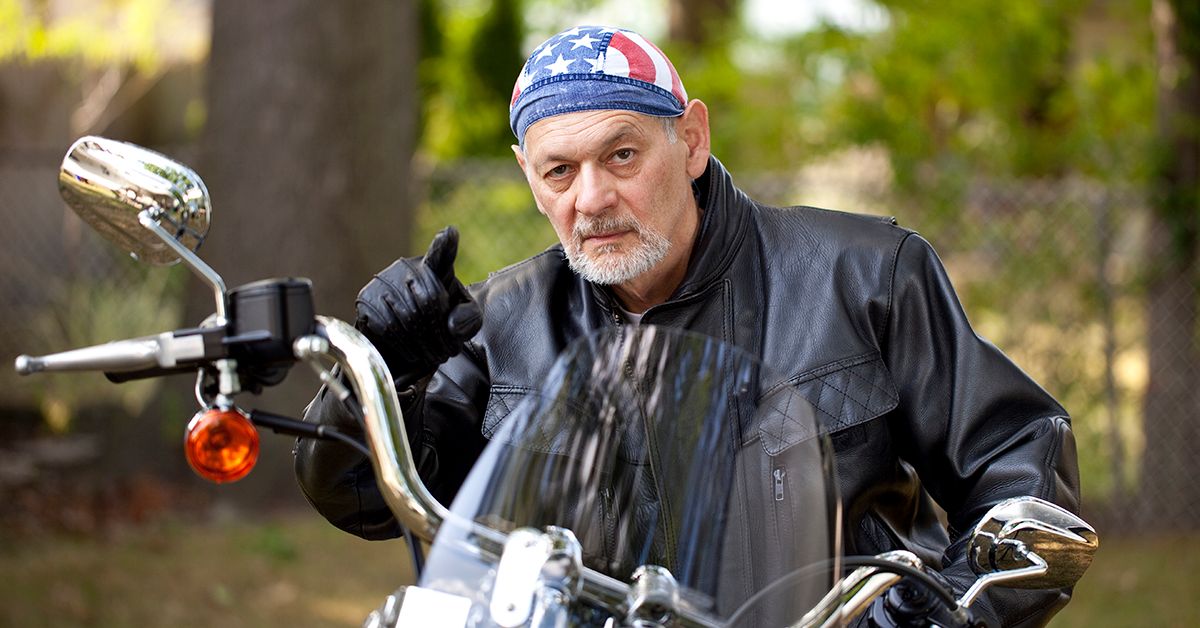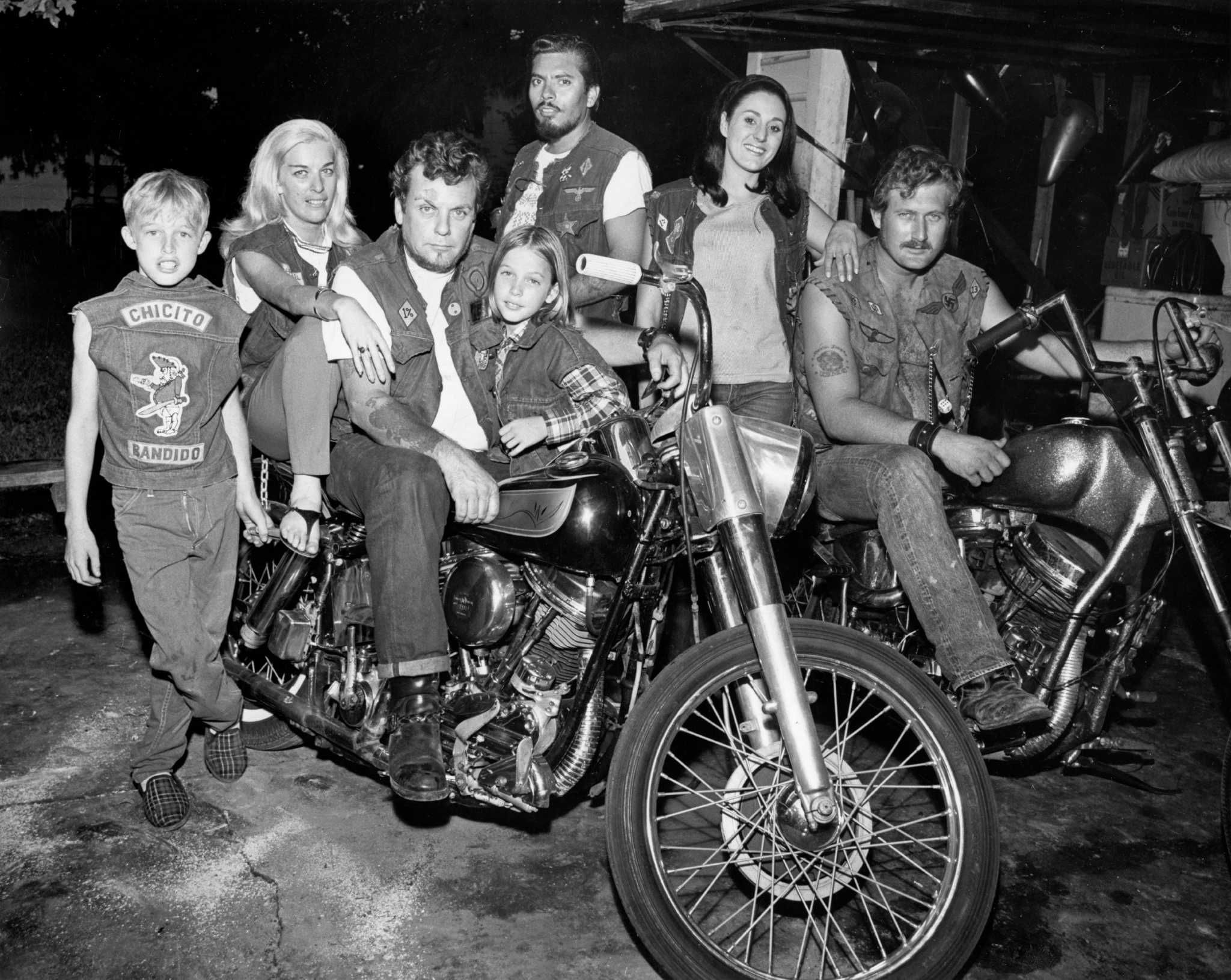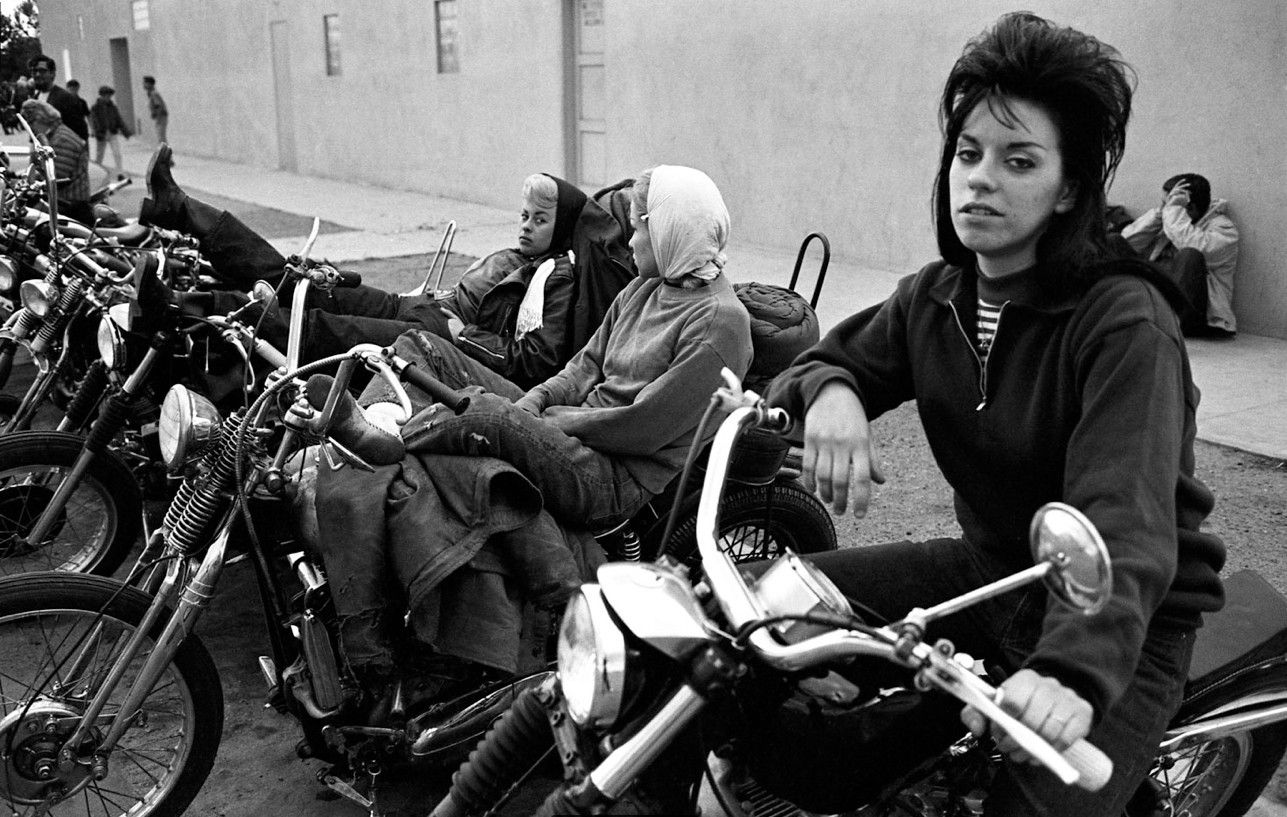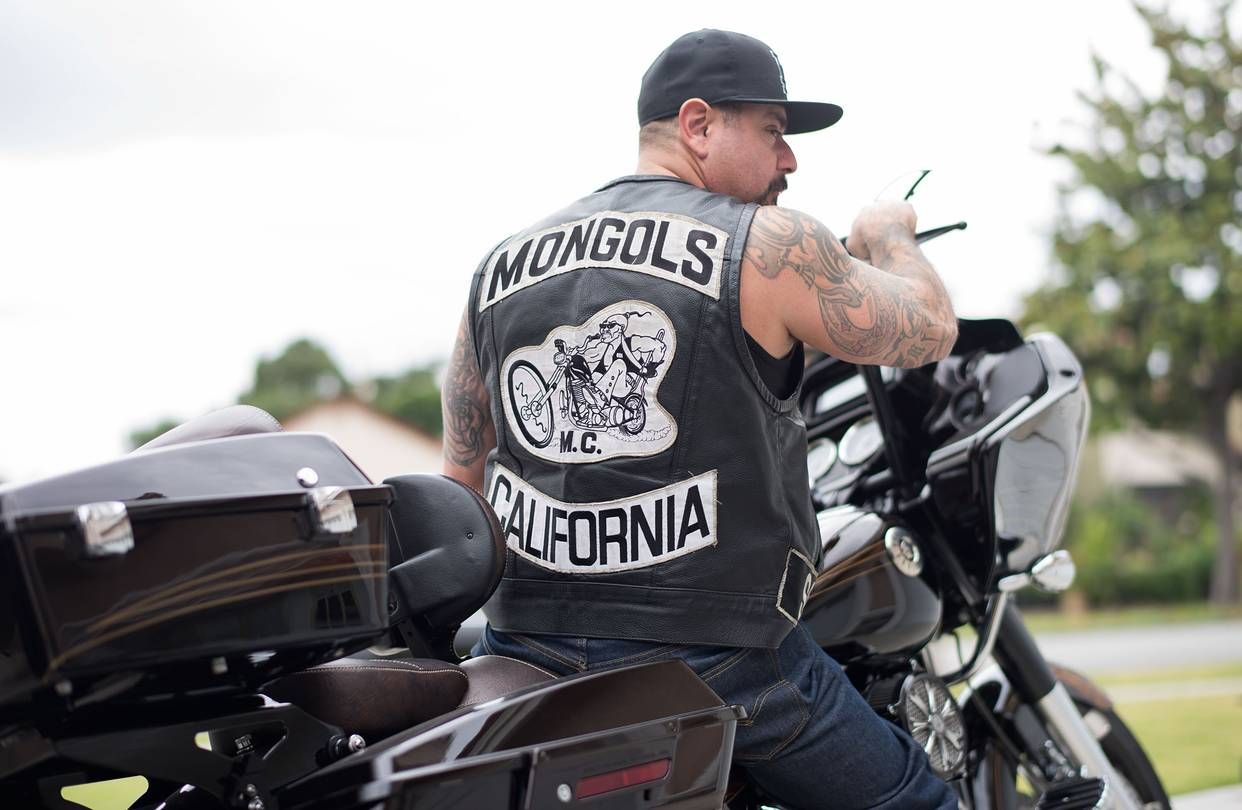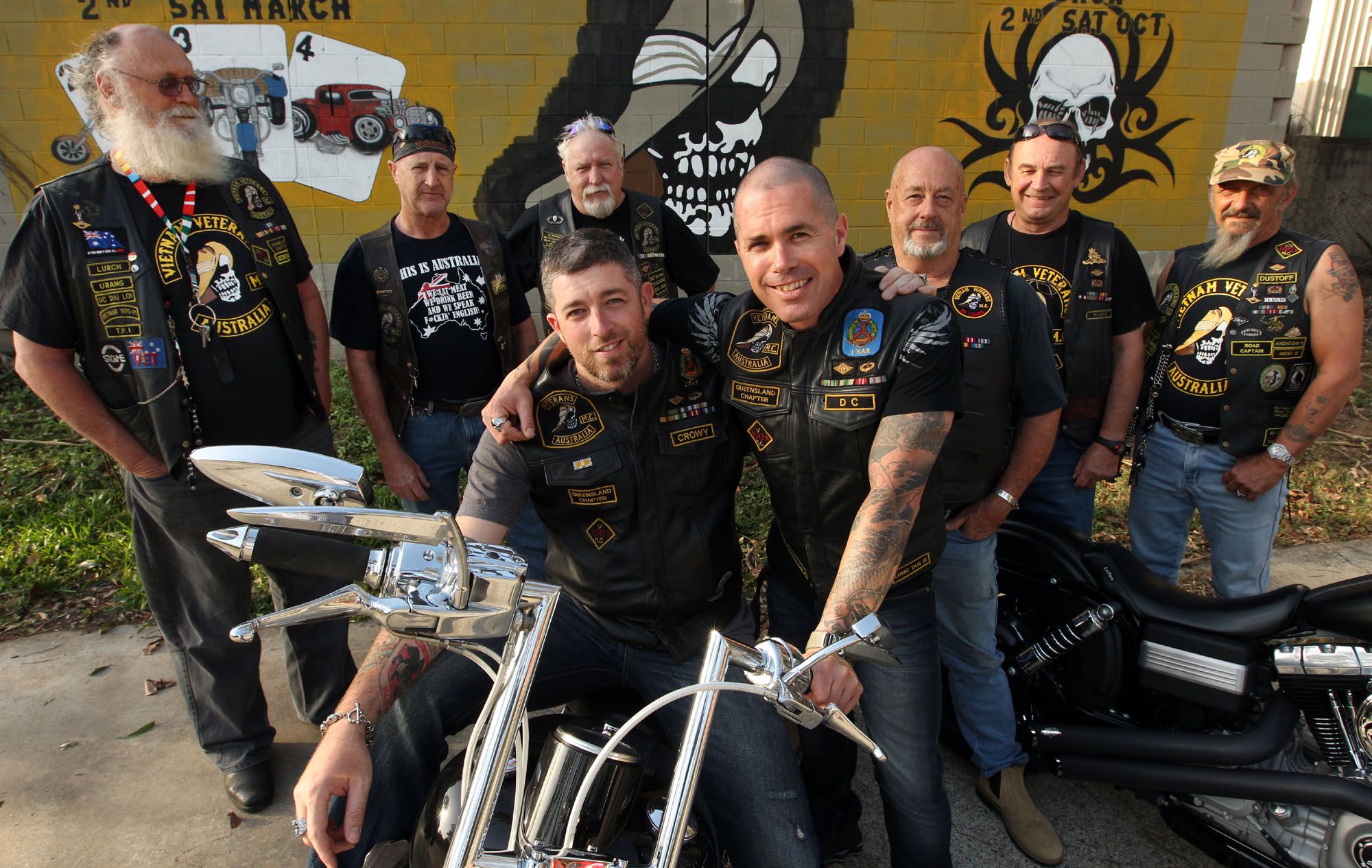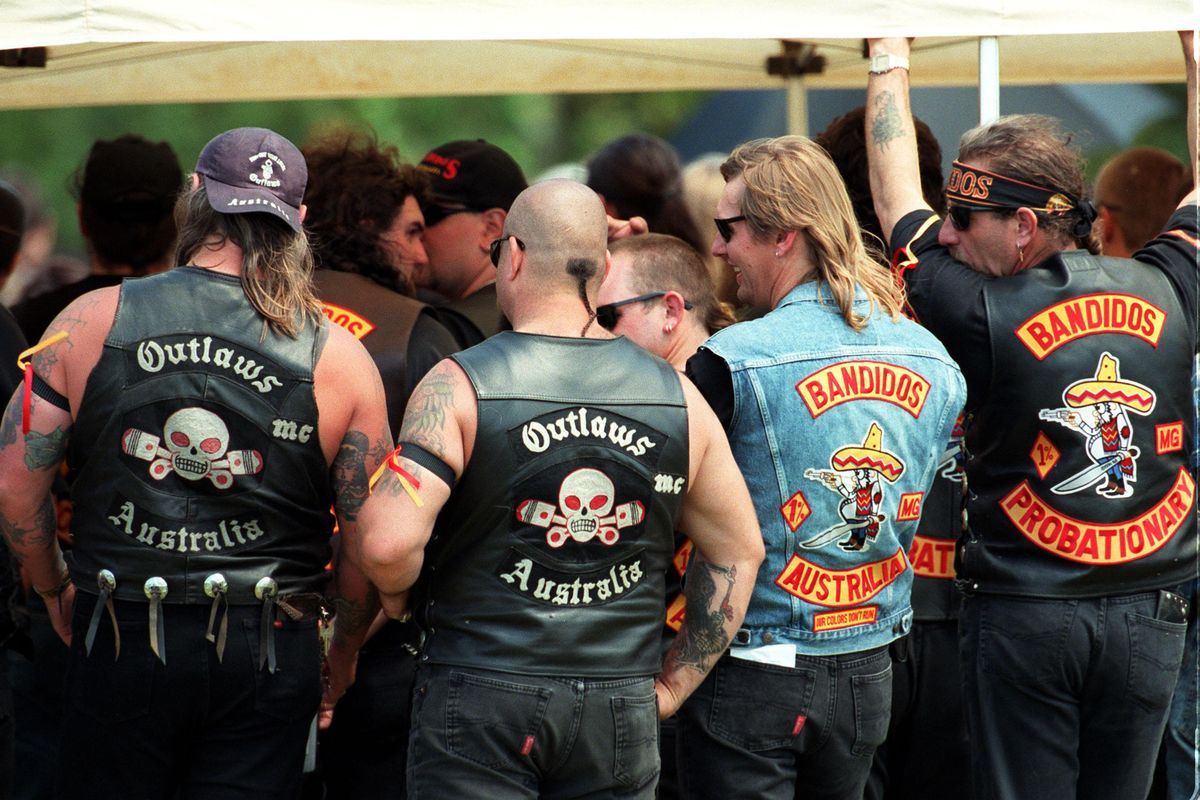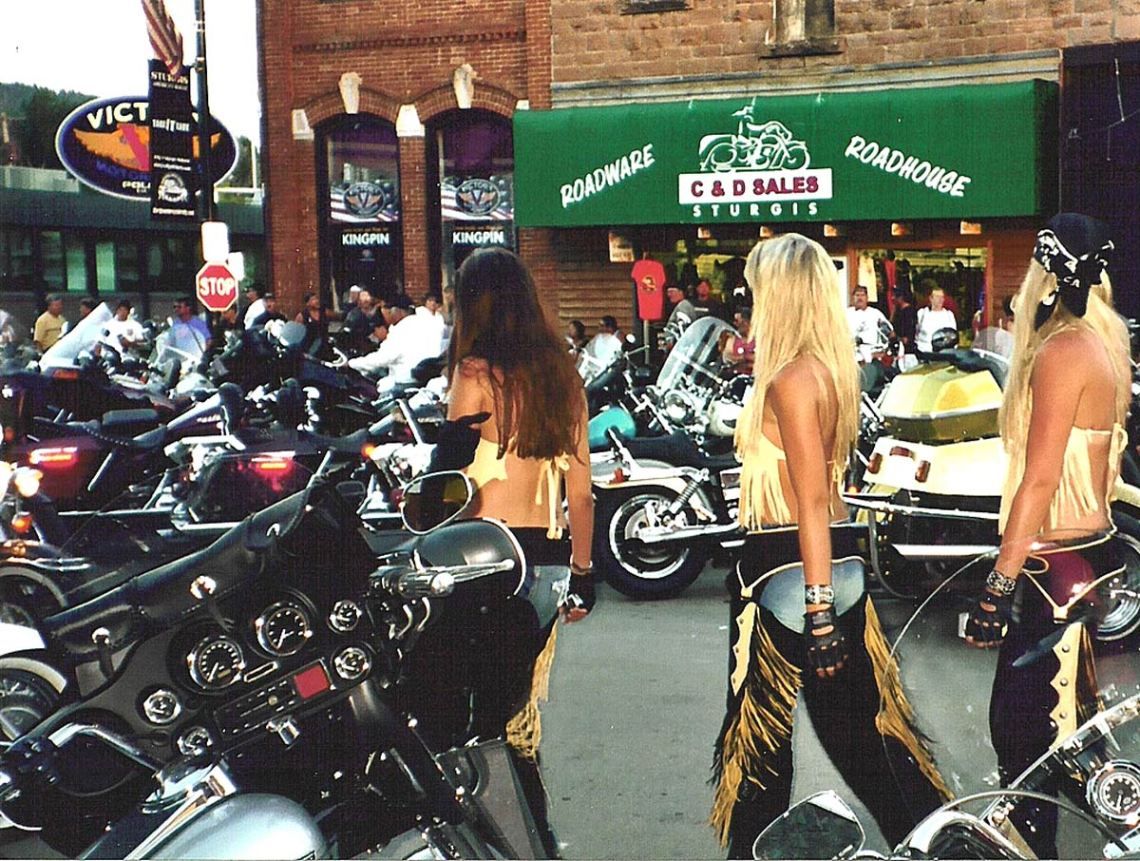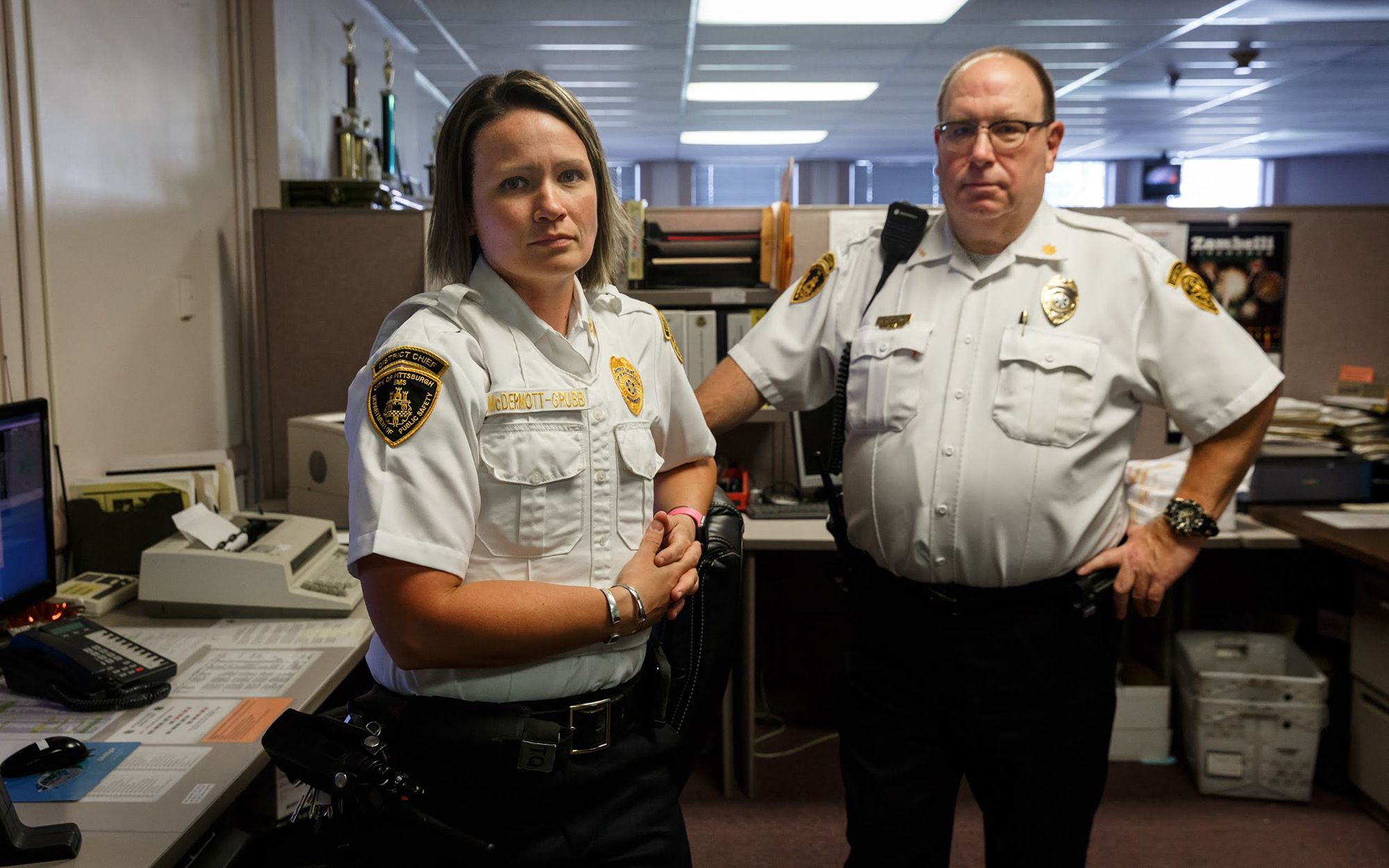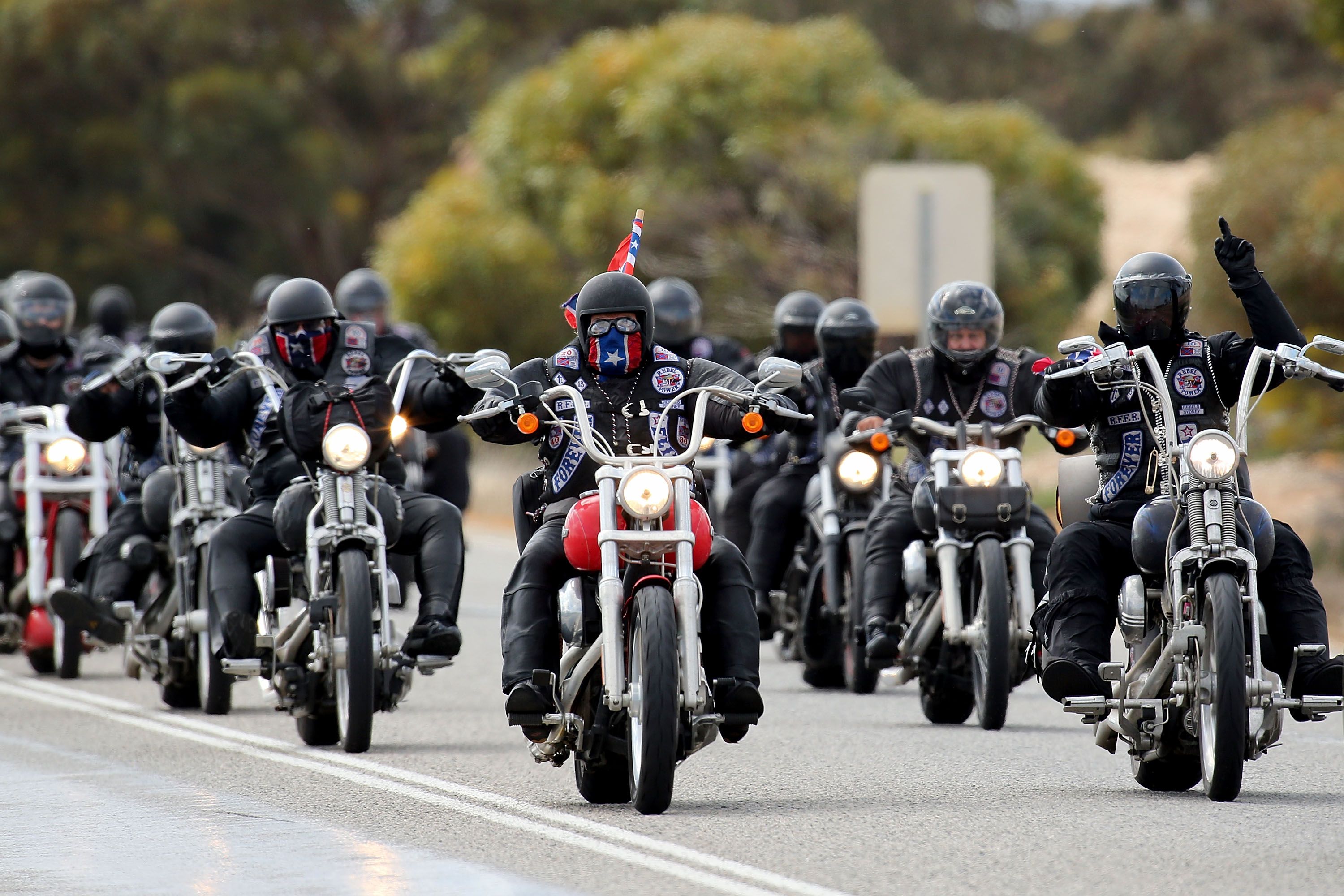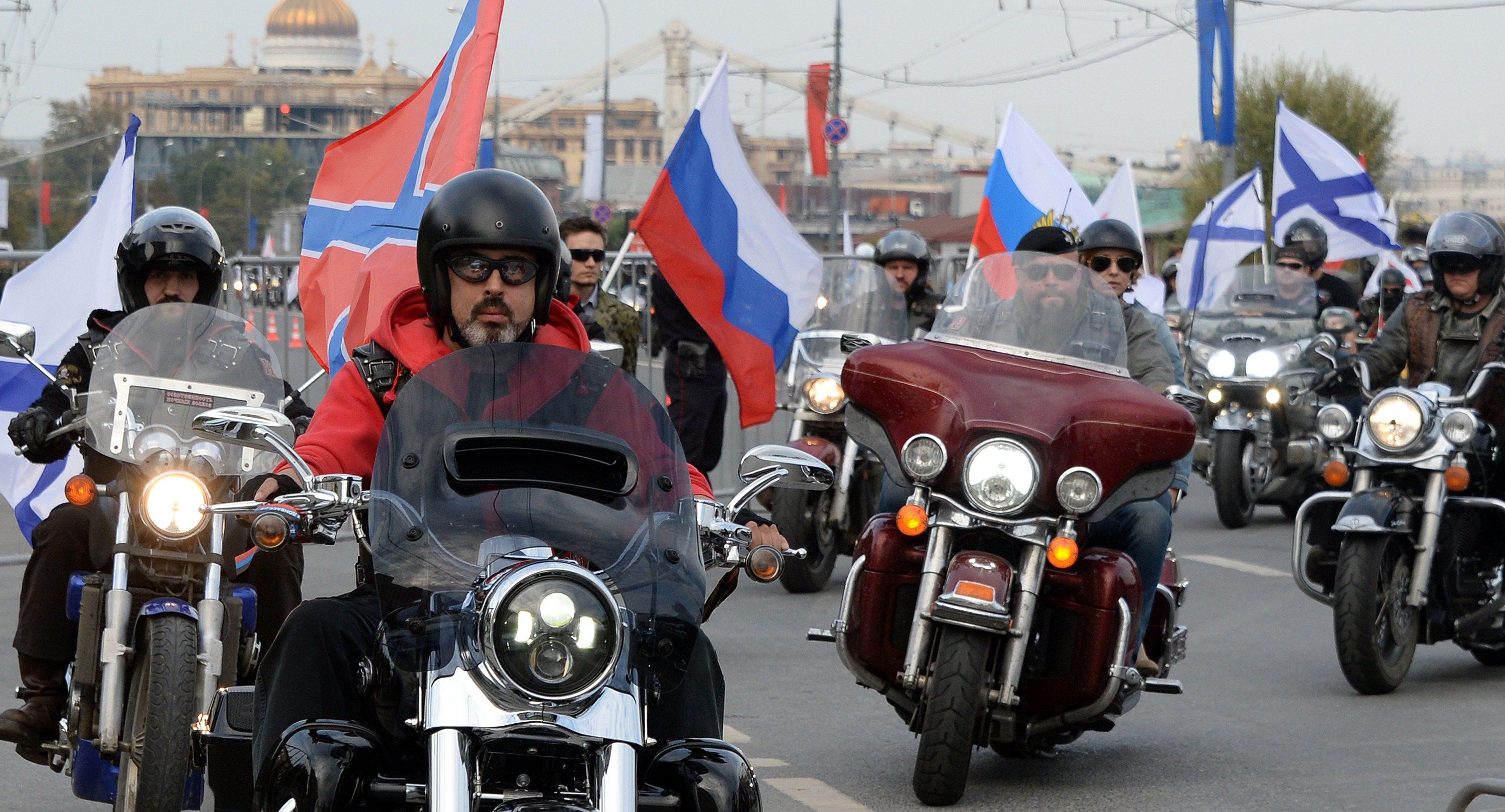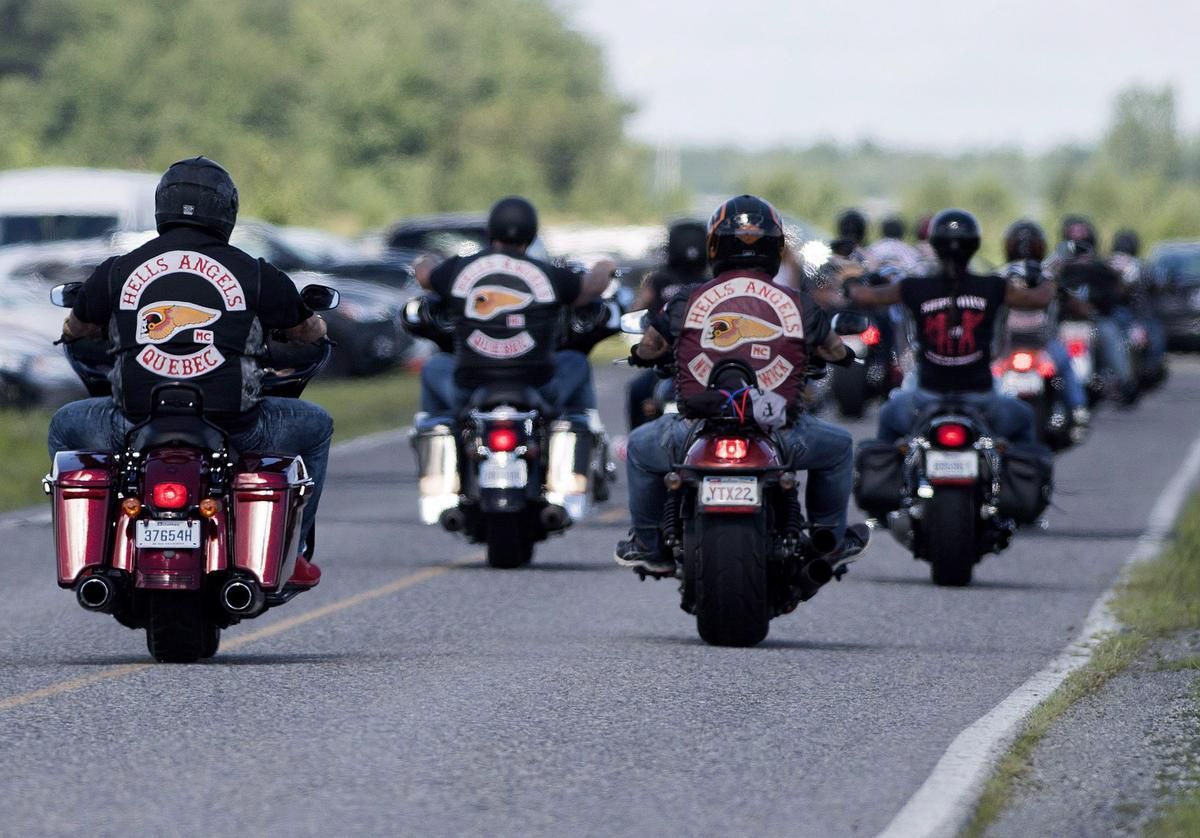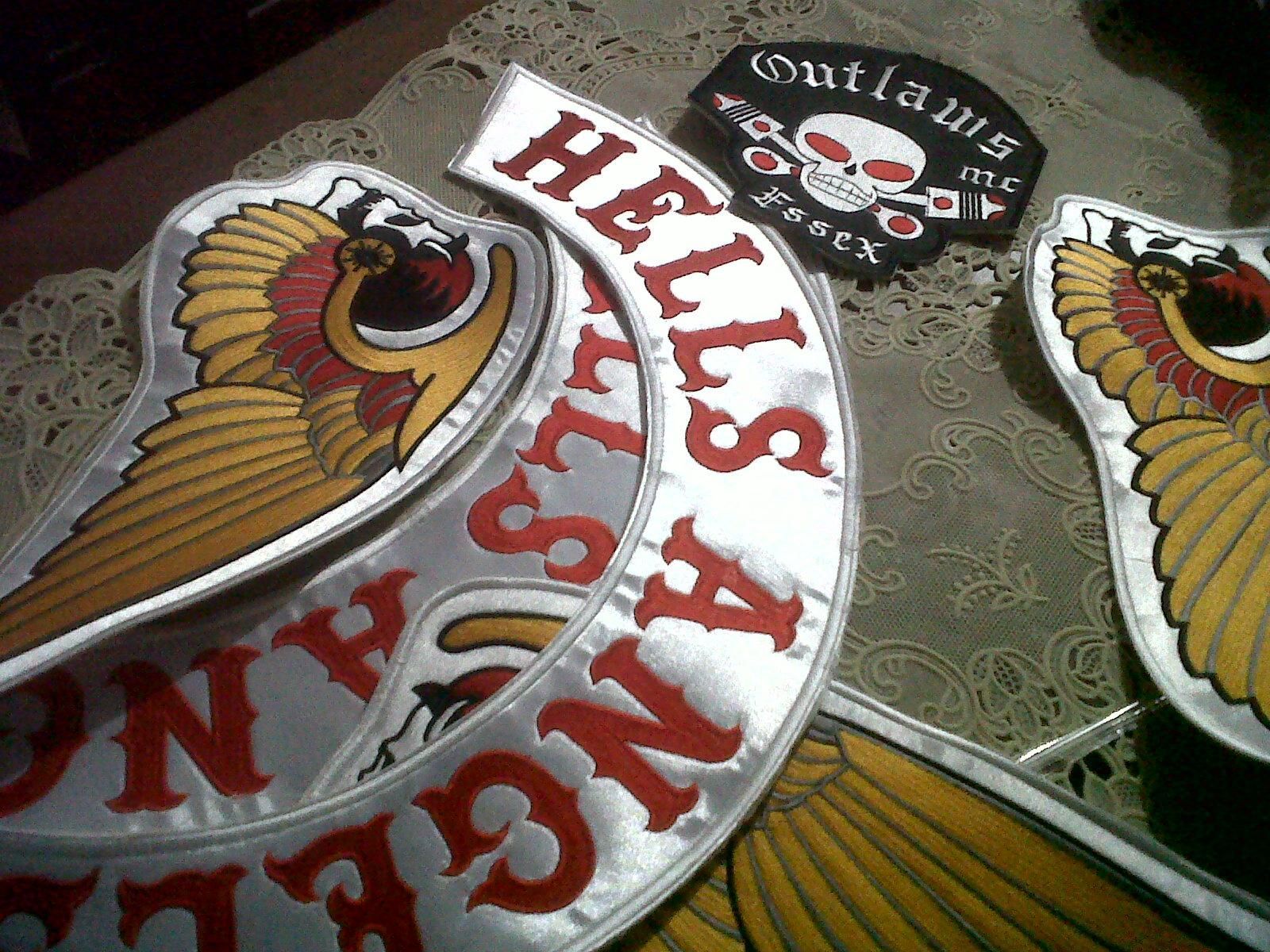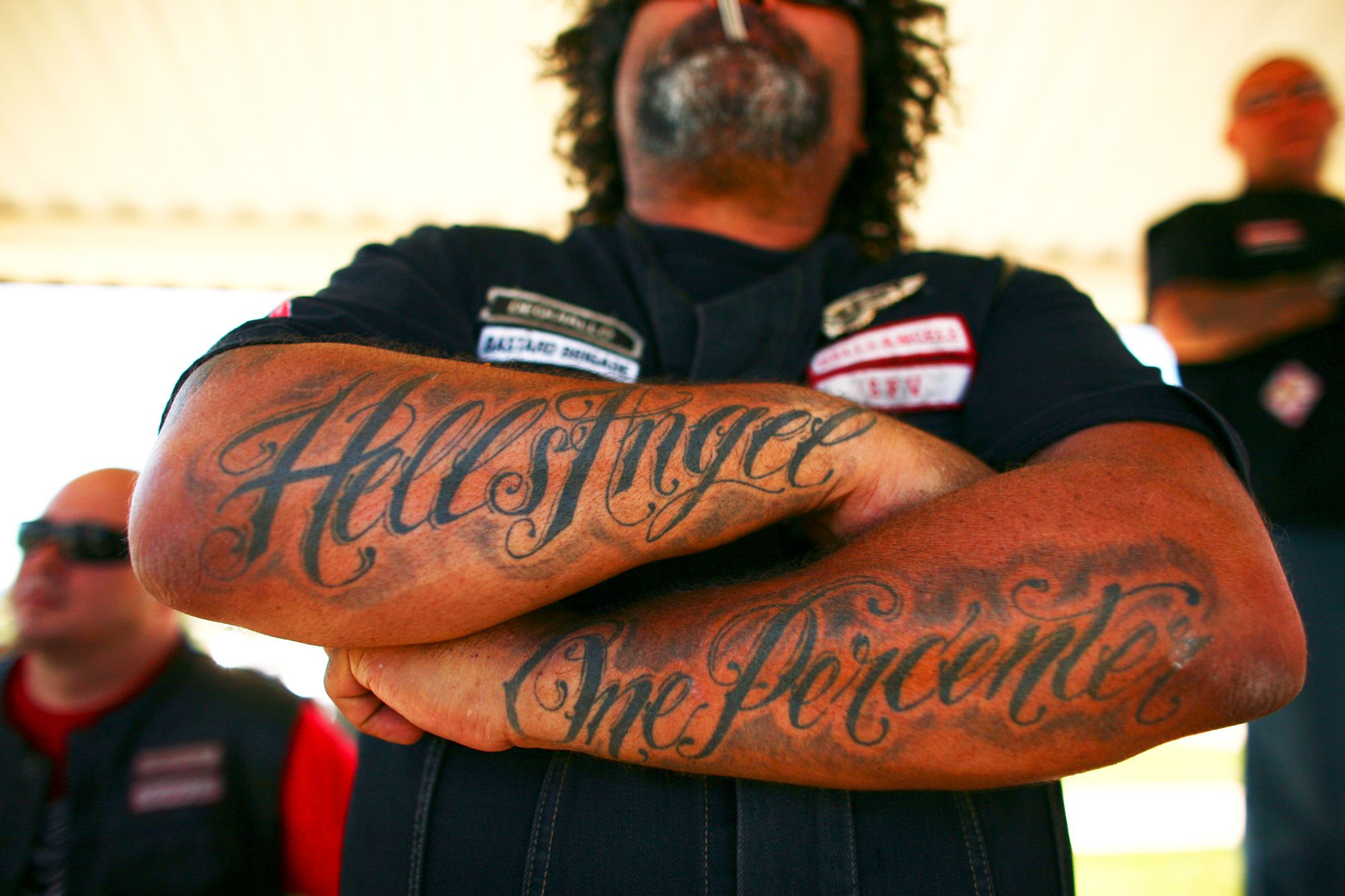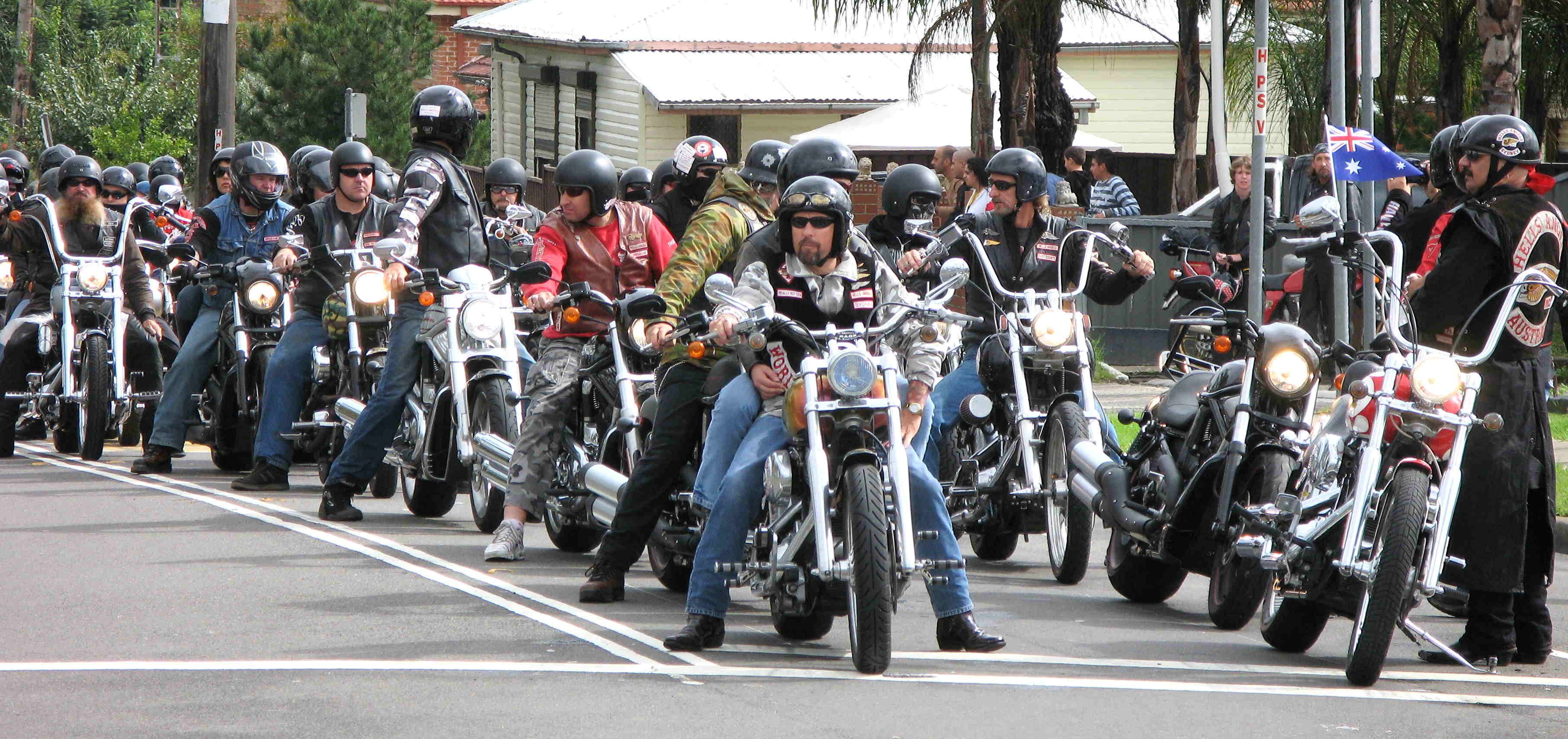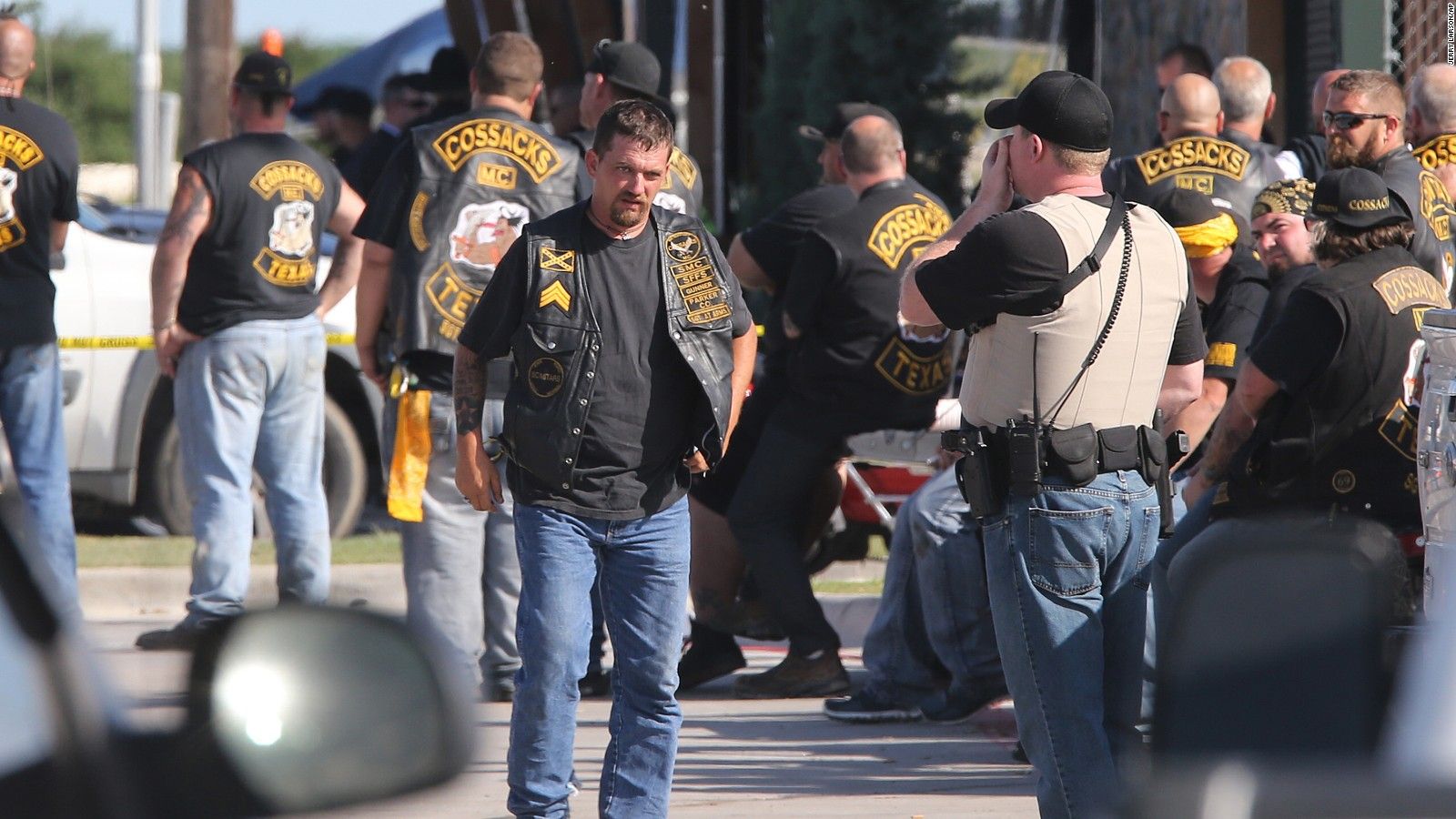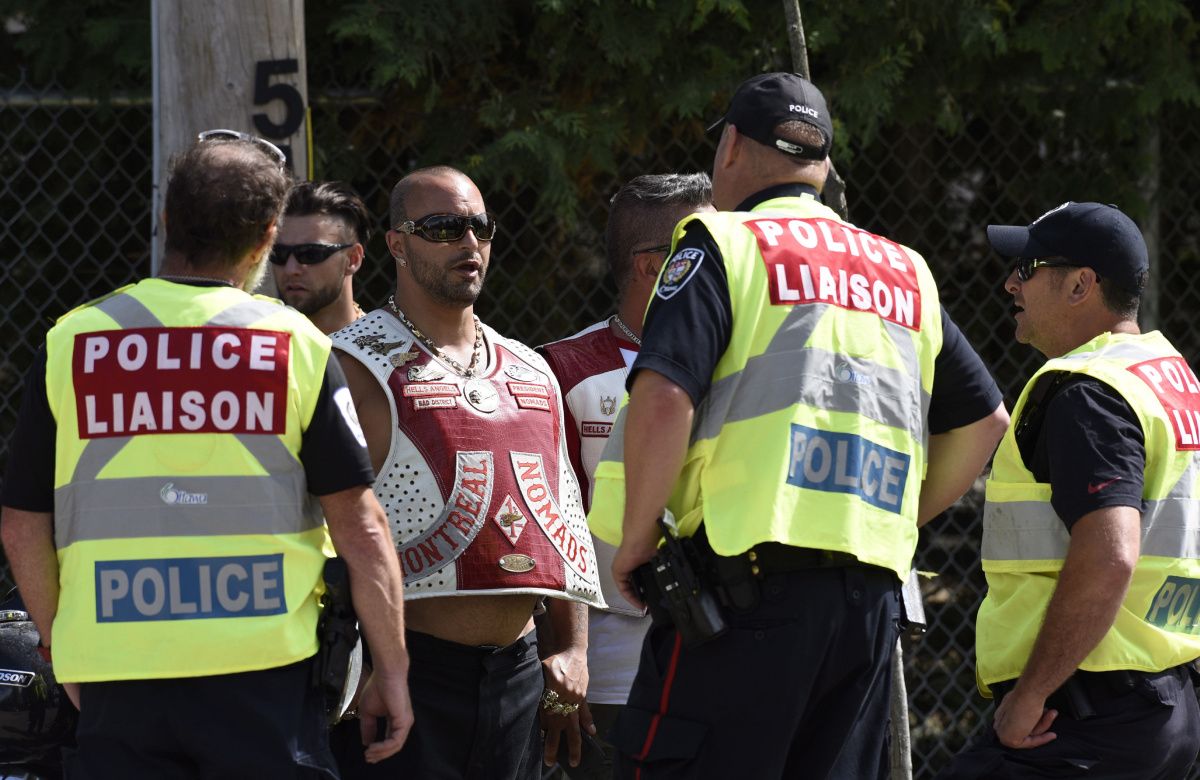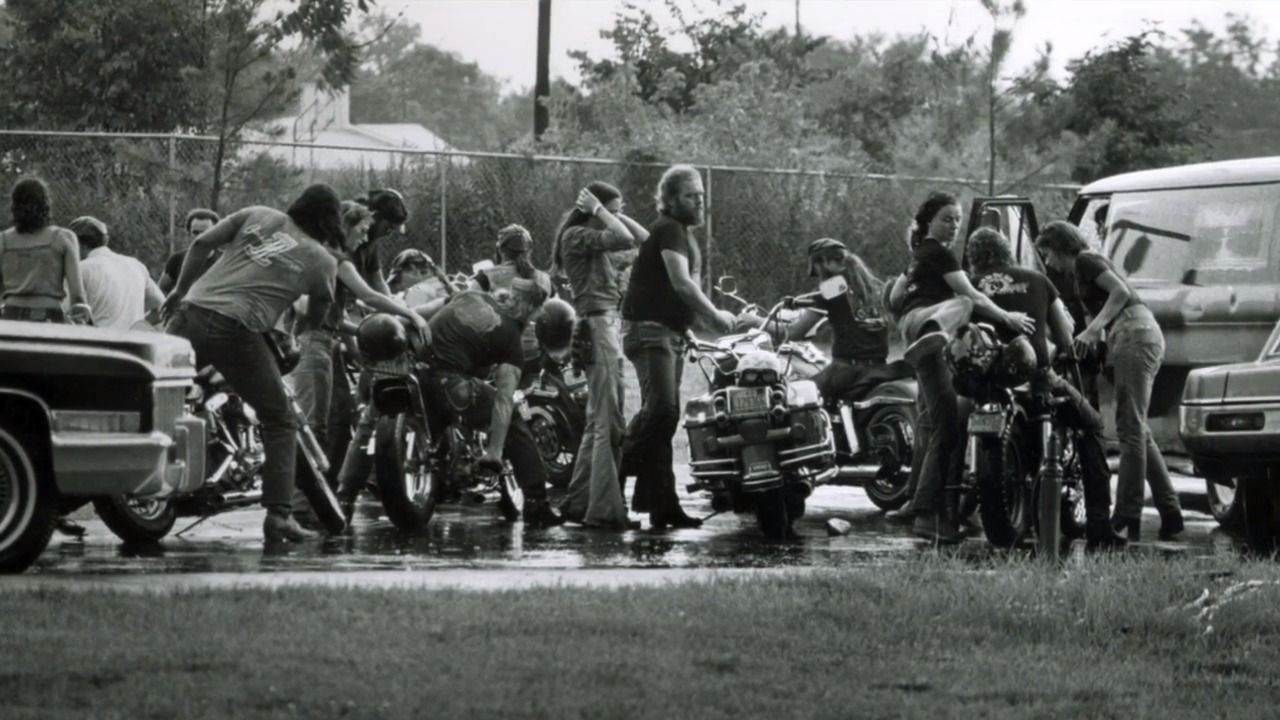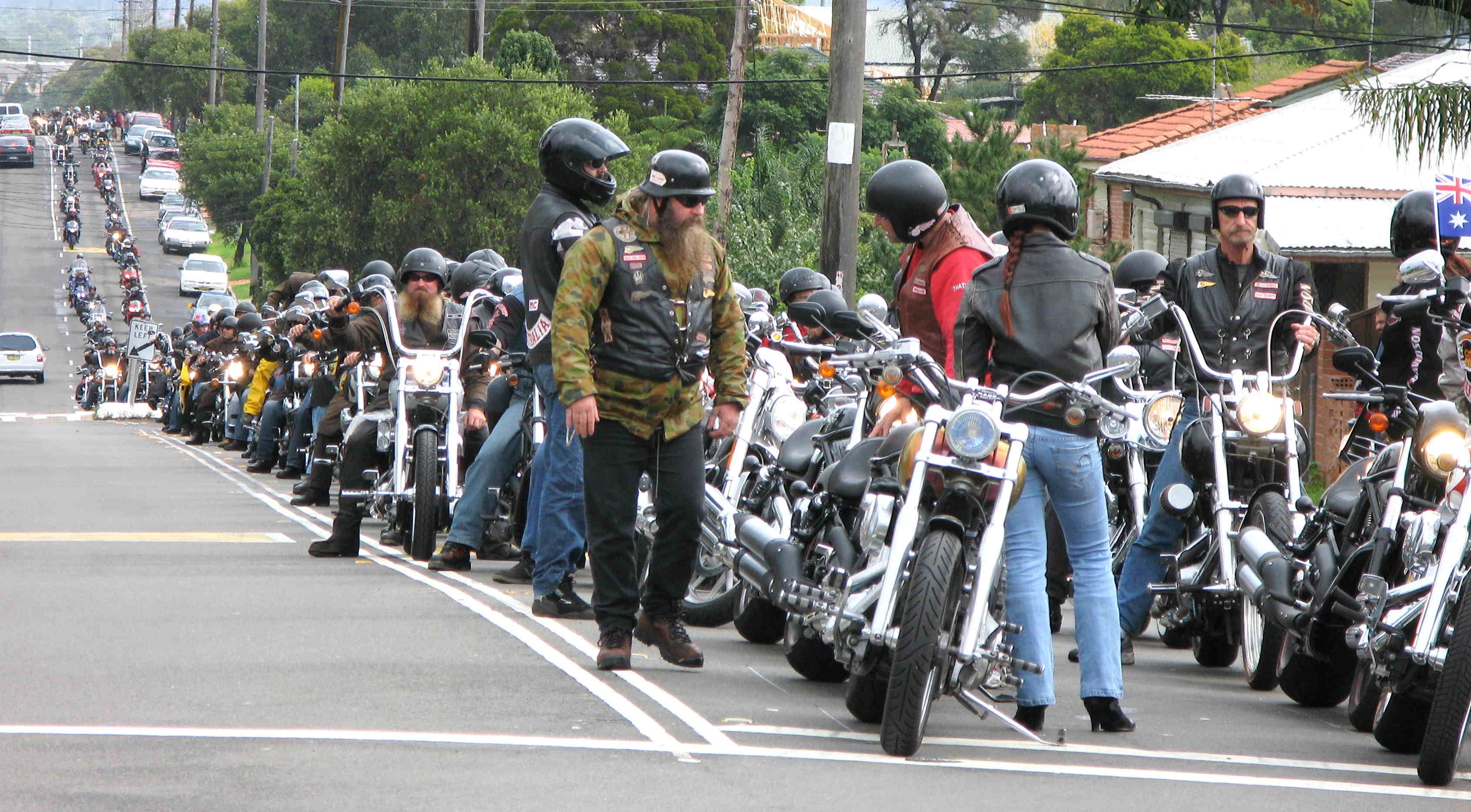The United States has a love affair with bikers, from the legends and myths of rebellious acts by our Founding Fathers, to the bank-robbing capers of Bonnie and Clyde, to the “bad boy” tunes of Elvis Presley and the Rolling Stones (who have had quite an affiliation with motorcycle clubs over the years). The culture in the US, and mass media, have led to characters that embody this bad-boy attitude, like Jax, the heartthrob biker from the TV show Sons of Anarchy.
Shows like Sons of Anarchy, and other fictional dramas, have long been the “norm” for how people learn about the constructs of these biker clubs. At the same time, it seems every motorcycle club around has been portrayed in the news, usually because of some terrible act, like the 2002 incident in Loughlin, Nevada.
But the media and TV shows fail to represent the whole truth. They fail to report the average, everyday activities of motorcycle clubs and the workday lives of their members. With nothing to compare against, other than TV, how can people learn what these motorcycle clubs are really like?
The biker narrative has largely been controlled over time by outsiders and misconceptions. It’s true that their lives are not all roses, but they often aren’t as drastic as we’re made to believe. They are regular people, with families—they just live a more radical existence outside of societal norms.
Here are 9 things the public knows about motorcycle clubs, and 7 secrets only club members themselves can tell you.
17 They Hide: They Like Fighting Over Territory
Despite the romanticized notion of biker clubs on shows like Sons of Anarchy, these are not nice people. Prejudice against women and minorities is endemic. So, does their control over large swathes of territory bring untold riches, like some biker Tony Montana? The truth is more mundane. Falco says, “It’s more just fighting over territory to fight over territory. It’s about control—genuine conflicts over territory happened, but years ago. They’re actually pretty miserable. They just sit around and talk about conflict—and if they didn’t go to fight with another club, they’d just go to fight with each other.” Apparently, there hasn’t been a real biker conflict in a while.
16 They Hide: The Hells Angels Consider Women As Property
The Hells Angels aren’t the only ones, either. Most of the prominent biker clubs around the world occasionally sponsor legitimate events to raise money, which is donated to charitable causes, but this is done to mask their other nefarious, illicit enterprises. Individual club members have been arrested in upstate New York, North and South Carolina, Nevada, and California.
Hells Angels were also implicit as part of a trafficking ring in a Berlin brothel.
On the Spanish island of Mallorca, 25 Angels were arrested in an operation coordinated by Interpol, German, and Spanish police, in which 30 separate properties were raided and individuals were charged with an array of offenses.
15 They Hide: “Bottom Rockers” Will Do Anything For Their Turf
The “bottom rocker” is the insignia that runs underneath the logo on the back of a biker’s jacket. It declares the state the club dominates. The club's “colors” are one of its most brutally enforced disciplines. Only one club can rule a state at a time, so claiming a state donned by another club can cause serious provocation. Former dealer Charles Falco says, “The Bandidos claimed Texas years ago. They’re OK allowing some smaller motorcycle clubs to be there, as long as you don’t wear a Texas bottom rocker.” (via shortlist.com). This seems polar opposite to the “Easy Rider” dream of bikers as free-wheeling incarnations of American liberty, but that’s how it goes.
14 They Hide: Formed By Veterans
The creation of the original clubs was made by veterans of WWII. The next generation was maintained by Vietnam vets, and now the conflicts in Iraq and Afghanistan have brought the newest generation to the fold.
Unlike street clubs, membership of biker clubs skews more toward people in their forties than teens.
Falco says, “When I infiltrated the Vagos in California, half my chapter was ex-Marines. These guys are highly trained [veterans].” They don’t represent the normal military person, either: they were probably antisocial before joining, and they enjoyed fighting. “They come out of the military and seek battle again, and biker clubs are good outlets to do that with,” Falco says.
13 They Hide: There Is A Shared Mutual Respect Among clubs
The biker code is such that if a biker of whatever race or club sees another biker broken down on the side of the road, he is obligated to help him. This doesn’t play well with their “tough guy” attitude, but that’s what Big Bear, one of the Outcast members of the Alabama chapter, told Shadowandact.com. Regardless of the segregation that exists within the world at large and within the biker world, the code of the biker trumps all of these barriers. In this way, the biker world can be seen as a sort of “Freemasonry” on wheels, whose ideals of brotherhood revolves around the two wheels of independence that the bikers ride upon, and the freeways they travel upon.
12 They Hide: They Protest Non-Conformity…Sometimes
The troubling notion of women as property plays a large part in the documentary, OUTCAST FOREVER. Girlfriends, female acquaintances, and female entertainers are affectionately branded as “property of Outcast,” or POs for short. (This is widespread amongst biker clubs, not just the Outcast group.) The women speak freely of their commitment to the bikers and their way of life. Many of them give documentarians the obligatory middle finger as they claim “Outcast Forever/Forever Outcast,” and proudly display their “property of Outcast” patches. The women are ruled under a rigid, well defined heterosexual patriarchal social structure where women have their place but cannot tell a man what to do. This irony plays against the established non-conformity and freedom of the bikers, which is tightly controlled besides the subservience of women as property.
11 They Hide: They Make It Hard For Emergency Personnel To Do Their Jobs
In an essay on the “One-Percenter Culture for Emergency Department Personnel to Consider,” the writers claim that because of their culture and solidarity, various aspects of motorcycle clubs make it difficult for health professionals to do their jobs when one of the bikers is injured. The essay claims “The arrival of an injured club member should cause ED personnel to become more vigilant for violent outbursts… If a club member perceives disrespect from anyone, including ED staff, the outcome can be deadly, as club members have an overarching requirement for respect and for saving face in all encounters and from every individual with whom they come in contact.” (NCBI.gov).
10 They Hide: The Bond Of Loyalty Has Diminished Since 2009
Despite all their claims of loyalty, motorcycle clubs have changed drastically since 2009. In that year, police officers from Strike Force Metter were able to convince two patched bikers to turn informant over a 2009 Sydney airport brawl in which a Hells Angel associate was beaten and passed away. The evidence saw a Comanchero boss convicted, and other bikers convicted of lesser offenses. Detective Superintendent Arthur Katsogiannis of the NSW Police says, “That bond of loyalty has long gone. It’s fractured and broken now. In the 1960s it might have been about camaraderie; they were still involved in manufacturing [substances] and going to the pub and drinking. Now the motorcycle clubs are a lot more business-savvy.”
9 They'll Share: They Are A Global Nuisance
This is clearly no secret: motorcycle clubs are not limited to the US. They operate internationally, on all five populated continents. The Hells Angels have chapters in Tokyo, Rio de Janeiro, Zurich, and even Auckland, New Zealand.
The Angels and Outlaws have openly fought in Great Britain with members of both groups inflicting serious wounds on each other.
The Australian government has even stripped citizenship from the leader of the Rebel club while he was out of the country. Australia also has a coordinated effort to oust and incarcerate members of the Hells Angels, Mongols, and Rebels who have consistently engaged in this type of behavior.
8 They'll Share: Hells Angels Regularly Sue For Copyright Infringement
This isn’t a secret either—all it takes is a little research to know that the Hells Angels (and other motorcycle clubs) regularly sue for copyright infringement. The Hells Angels have grown into a sophisticated business organization that zealously guards its symbols and trademarks (partly why Sons of Anarchy is so despised amongst the biker club culture). The organization has pursued legal trademark infringement litigation against such entities as Toys “R” Us, Amazon, Saks, and Marvel Comics. Typically, cases are settled with a recall of products, cessation of manufacturing infringed items, and occasionally damages paid, which are donated to charity. Disney has even been sued over the film Wild Hogs, though the suit was dismissed when Disney agreed to delete any infringing material.
7 They'll Share: Anyone Can Buy The Merch
You can thank the insurgence of Sons of Anarchy and spinoffs for this, partly, but even before those shows, it was possible for any regular Joe to buy motorcycle merchandise online. Is it a good idea? No. But it can be done. The sophistication with which the Hells Angels and other clubs market their image, symbols, trademarks, and merchandise has evolved into a process that involves a detailed and extensive website. The public can purchase items of clothing, interact with other Hells Angels websites around the world, browse photos and videos, and even locate Hells Angels businesses through an extensive international directory. Most other biker clubs have also produced similar websites.
6 They'll Share: Outsider Motorcycle Clubs Are Known As One-Percenters
Motorcycle clubs like the Hells Angels, Bandidos, Mongols, Pagans, and others, are known as “1%ers” or One-Percenters, as opposed to the other 99% of organized motorcyclists who are just members of regular biker clubs with no lawless intent. This expression stemmed from an incident in July 1947, in Hollister, California, in which 4,000 attendees at a motorcycle rally rioted, prompting the sponsors, the American Motorcycle Association, to state that 99% of motorcycle riding public were good citizens. Members of the motorcycle clubs in attendance stated that they were the other 1%, an identity that they flaunted with pride.
5 They'll Share: The Clubs Are Highly Structured
Though the public image of a motorcycle club might seem romanticized at times and completely unstable and random during other times—a collection of disorganized thugs who occasionally engage in spontaneous outbursts of violence—the reality is much different.
In truth, motorcycle clubs feature a specific hierarchy with club leaders, officers, and individuals designated to certain tasks and statuses, even if they haven’t earned official membership into the group yet.
The larger bike clubs hold chapter meetings at the local level on a regular basis, in a designated clubhouse, which is internally known as “church.” The Department of Justice has designated the characteristics that specifically define the kind of organization inherent in a motorcycle club.
4 They'll Share: According To The DOJ, There Are Seven Primary Clubs
The Department of Justice has identified the seven major motorcycle clubs that comprise the majority of One-Percenters. These include the Hells Angels, the oldest and most familiar motorcycle club in the US. The Mongols are a Southern California club that is mostly Hispanic, and a chief rival of the Hells Angels. The Bandidos are one of the largest clubs in the US, operating in the south and southwest. They are predominately a Midwestern club comprised of around 700 members. The Pagans are a Mid-Atlantic group tied to organized crime, especially in urban Pennsylvania. The Sons of Silence have chapters in as many as 30 states. The Vagos have members in the southwest and in Mexico. A lesser-known club, the Cossacks, is rapidly approaching national influence levels.
3 They'll Share: The US Government Uses Loopholes To Indict Biker Club Members
Back in 2012, the federal government used the RICO Act (Racketeer Influenced and Corrupt Organizations) to charge and imprison Peter Soto, a former leader of the Mongols Motorcycle Club. Soto admitted to “frequently possessing firearms, conducting Mongol meets and participating in acts of violence,” as well as dealing. He was sentenced to six years in jail. In 2015, Federal prosecutors attempted to seize control of the Mongols trademark logo, though they were unsuccessful. They were able to get an indictment under RICO that asserted the trademark was an asset subject to forfeiture based on its collective use by an entity, but a US District Court Judge dismissed the indictment. (via Ranker.com)
2 They'll Share: Turf Disputes Make Casualties
The turf conflicts that motorcycle clubs engage in are one of the worst aspects of this life—but it’s also one that many bikers live for. On May 17, 2015, members of the Bandidos and Cossacks met in Waco, Texas to resolve a turf dispute regarding club colors and refusal of the Cossacks to pay dues while operating in Bandidos territory.
A fight broke out over the tense atmosphere, over a parking spot, which escalated to a firearm battle.
Police monitoring the event claimed club members were shooting at them, so they participated. Nine people were mortally wounded, mostly Cossack club members or individuals affiliated with one of the two clubs. Over 100 individuals were detained and prosecuted, an act that caused widespread criticism to the Waco Police Department. This is just one of many, many such incidents.
1 They'll Share: Charity Work Is Done To Offset Negative Image
One of the biggest distinctions between motorcycle clubs and gangs is evidenced through philanthropy. It’s been widely reported by local, state, and federal law enforcement that MCs support charities, mainly for the positive public relations that come from them, offsetting some negative public image. But they also do it to help.
MC family members are or have been affected by the maladies the charities seek to eradicate, and members of the local community are legitimate in their need.
MCs support a wide array of local, national, and international charities that seek to end cancers, poverty, hunger, and children’s diseases. They are most heavily charitable to support disabled veterans organizations.
Sources: cnn.com, ranker.com, shadowandact.com, dailytelegraph.com, shortlist.com, ncbi.nlm.nih.gov

